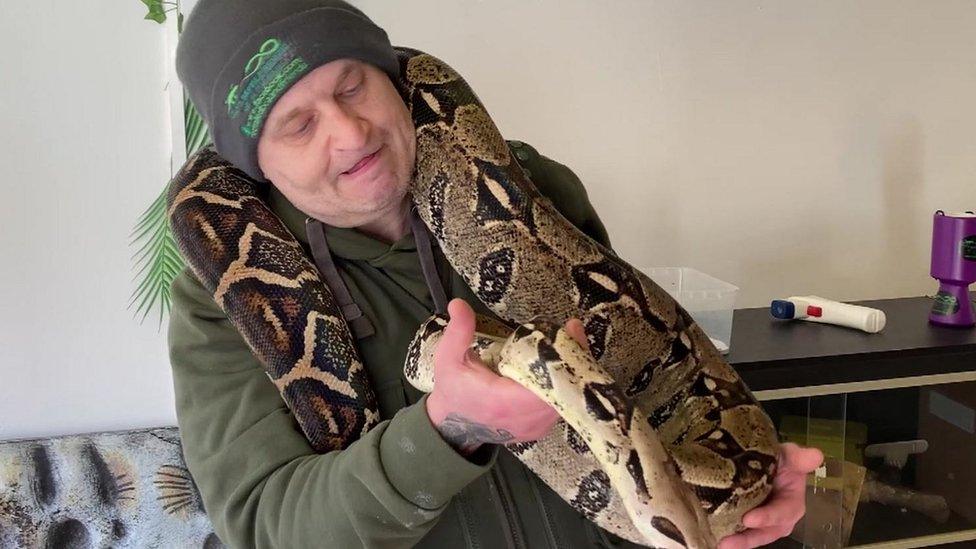'Status symbol' alligators scaring owners - refuge
- Published
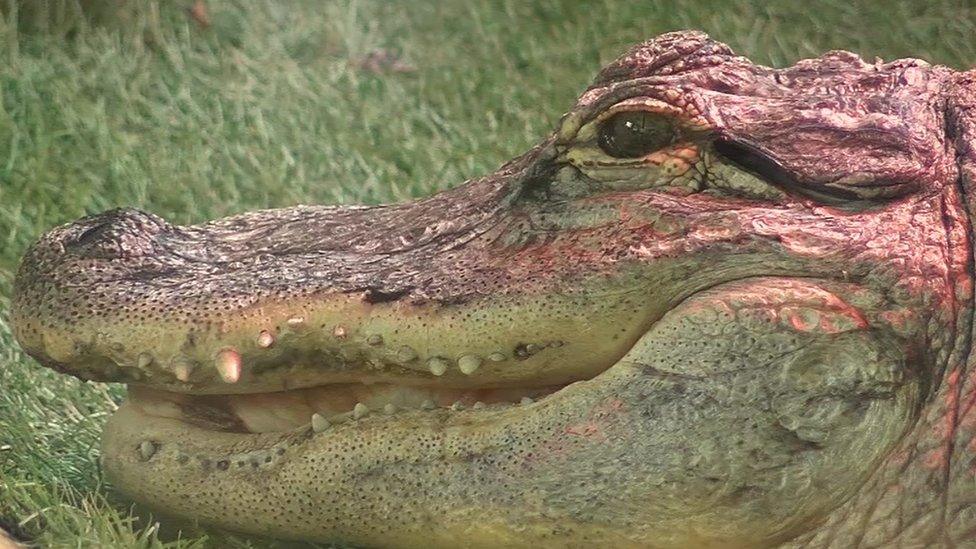
People are giving up pets like alligators when they get too big, a charity says
Alligators and other exotic creatures bought as "status symbols" are being given up by owners who get frightened when they get big, a charity has said.
Pam Mansfield, co-owner of The Exotic Pet Refuge, urged people to properly research species before buying them.
She said: "They're a status symbol. People will say, 'OK, I'll have an alligator or a 10ft boa constrictor.'
"But when the animal gets big, they will get too frightened to handle them, and then the pet has to go."
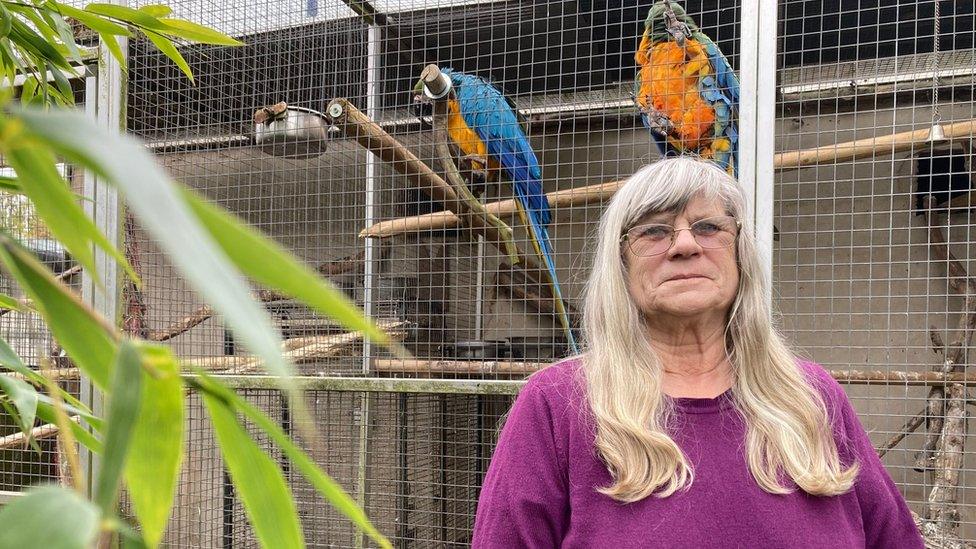
Pam Mansfield, co-owner of The Exotic Pet Refuge, urges people to do their homework before acquiring animals
The Lincolnshire refuge is home to 350 exotic creatures - up from 300 this time last year.
Animals include, among others, parrots, monkeys, snakes and even alligators and caimans.
It receives referrals from zoos across the country, as well as the RSPCA.
Mrs Mansfield, who owns the sanctuary - a registered charity - with her son Darren, said: "People wanting to get rid of an exotic animal might ask a zoo if they know anywhere they could take it.
"A lot of them [zoos] have a list of places to refer people; us being one of them."
The keeping of certain species of wild animals, including alligators and caimans, is controlled by the Dangerous Wild Animals Act 1976, external.
However, Mrs Mansfield said in some cases owners are not in possession of licences that allow people to own dangerous animals.
She blamed a rise in the number of exotic animals requiring sanctuary on owners' "lack of understanding".
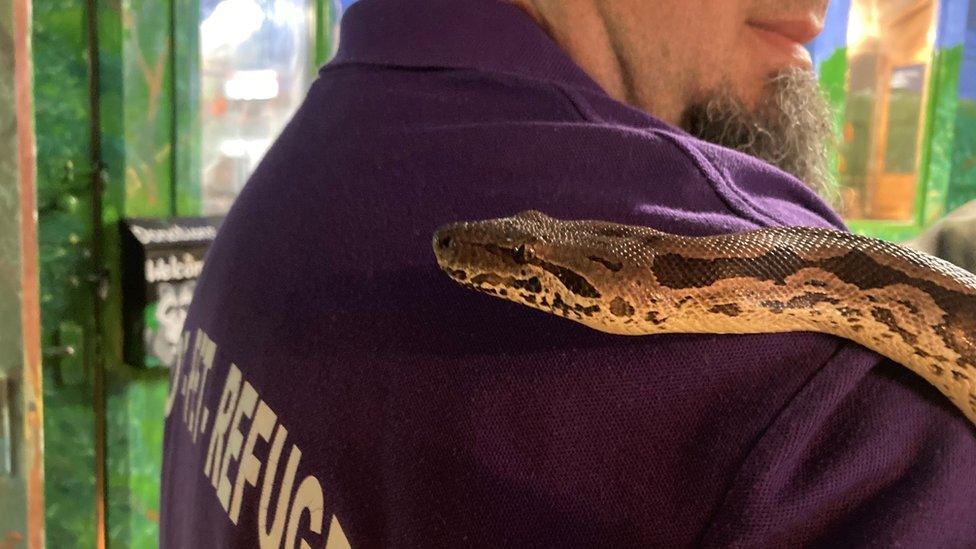
Some owners get too scared to handle their pets when they get too big, it is claimed
"People buy these type of animals when they are only 2ft or 3ft long," said Mrs Mansfield.
"But they grow and grow. A boa constrictor, for example, will require an even bigger vivarium. When it gets to about 12ft, it will need its own room. People just don't have the space."
Mrs Mansfield felt the cost of living crisis had forced many owners to part company with their exotic animals.
She said: "A lot of these creatures need warmth. The alligators have heated pools and under floor heating. The monkeys have central heating."
When electricity prices were at their highest, Ms Mansfield said the charity was forking out £10,000 a month.
Although the bill has halved, Mrs Mansfield said it is still a significant sum to find each month through fundraising.
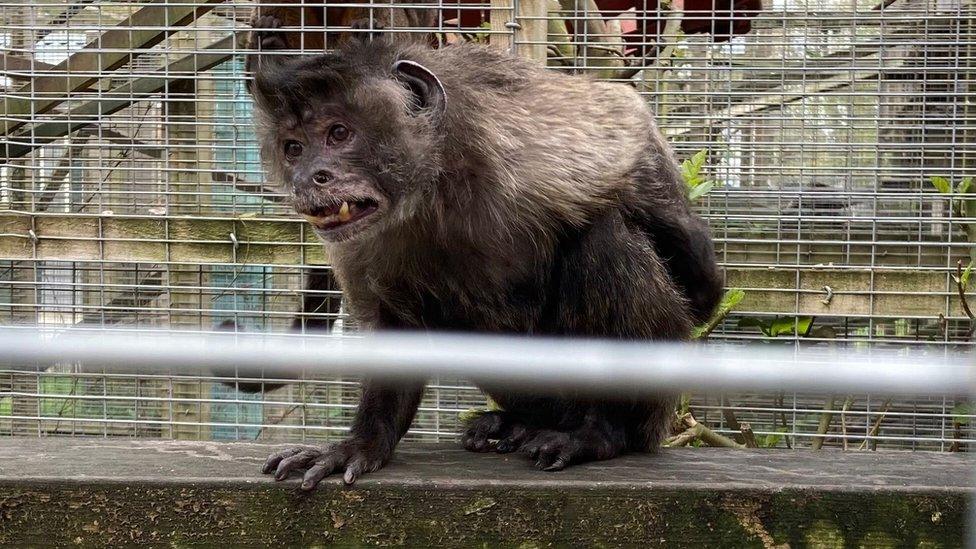
The refuge expects tighter controls on owning primates - like Benny, a 66-year-old capuchin - will fuel a rise in numbers being given up
In addition to the financial pressures, Mrs Mansfield and her team expect to be asked to take in more primates.
From 2026, a licence will be needed to own animals such as orangutans, chimpanzees, lemurs and monkeys.
The refuge opens six times a year, allowing the team to promote its work.
"If we were to open more often we would need to be licensed as a zoo," explained Mrs Mansfield.
She has been caring for unwanted exotic pets since 1976, when she took in a Burmese python.
"My husband turned our sideboard into a vivarium," she said.
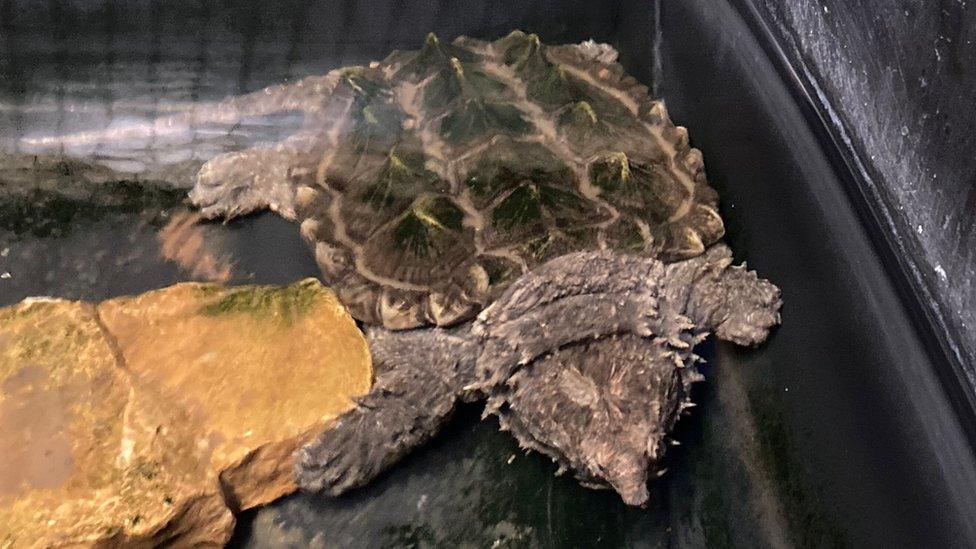
A snapping turtle being cared for at the refuge
Mrs Mansfield urged people considering buying an exotic animal to conduct thorough research beforehand.
"People need to find out as much as they can about the animal," she said. "And know it's an expensive hobby."

Follow BBC East Yorkshire and Lincolnshire on Facebook, external, X, formerly Twitter, external, and Instagram, external. Send your story ideas to eastyorkslincs.news@bbc.co.uk, external.
Related topics
- Published18 January 2024
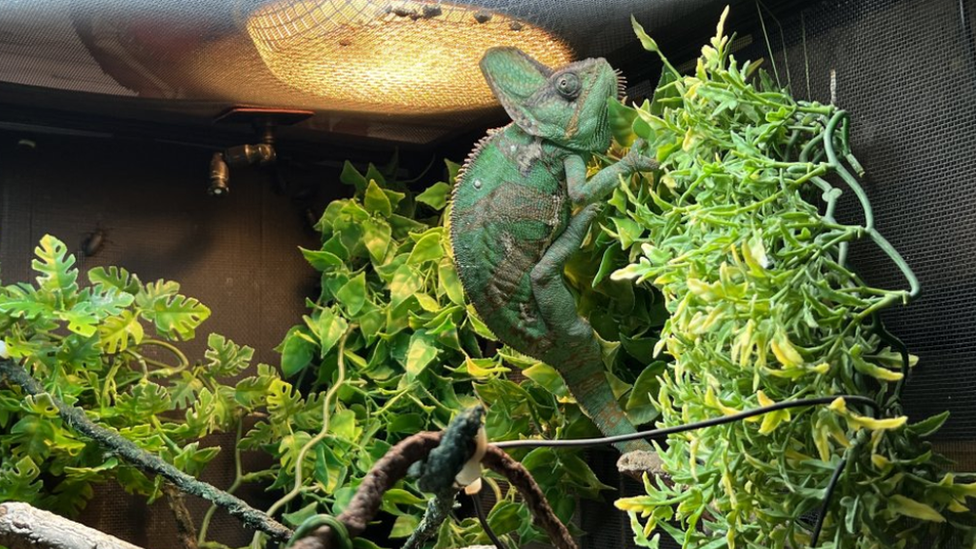
- Published7 February 2024
